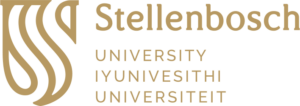Sustainable Development
at STELLENBOSCH UNIVERSITY
Sustainability contributions
SDG 13: Climate Action
SDG 13
Climate Action
Climate change is disproportionately affecting developing countries that do not have the resources to dedicate to mitigation and prevention. CO₂ emissions are still rising in South Africa, despite goals to decrease emissions.
Universities can affect change by educating people on the dangers of climate change and by funding and conducting research into mitigation strategies. Universities can also change their own practices to help prevent climate change and help shape governmental policy regarding climate change.
SDG 13 links to food security (SDG 2), water and energy (SDGs 6 and 7), and biodiversity (SDGs 14 and 15). Climate action correlates with both Goal 5: Environmentally sustainable climate resilient economies and communities and Goal 6: Blue/ocean economy for accelerated economic growth of Agenda 2063.

Goal 7
Environmentally sustainable climate resilient economies and communities

Goal 6
Blue/ocean economy for accelerated economic growth
In 2021, Stellenbosch University launched the School for Climate Studies (SCS), the first of its kind in Africa.
Disaster Risk Reduction for Africa
Periperi U is a platform for university partnership to reduce disaster risks in Africa, with its secretariat hosted at Stellenbosch University. It stands for ‘Partners Enhancing Resilience for People Exposed to Risks’ – with a special focus on advancing university action on risk and vulnerability reduction in Africa, through a network of 12 Universities in 12 countries across the continent.
Between 26 October – 18 November 2021 the PERIPERI U secretariat at SU collaborated with the United Nations Development Program (UNDP) to host a series of online trainings titled the “Climate and Disaster Risk Financing” (CDRF) short courses. The courses were focused on introducing participants (particularly government officials form Africa and further abroad, UNDP personnel and other critical stakeholders) to the concepts, core principles and instruments of CDRF, as well as essential methodologies, tools and stakeholders which should be engagement to develop and implement effective CDRF strategies. Other short courses offered through PERIPERI U with the UNDP in 2021 included Covid Recovery Needs Assessment (CRNA), Covid Recovery Needs Assessment (CRNA) Workshop and Urban Risk Management. These courses were well attended by an international audience of Risk Reduction practitioners in a range of governmental, university and non-governmental positions.
- During the year, a number of conferences, as well as dialogues and webinars were hosted, co-hosted or presented by PERIPERI U in the field of disaster risk reduction in the light of climate change, to create a more resilient Africa.
- CRSES provides free resources to local schools to teach students programmes about renewable energy with the aim to raise awareness about climate change and strategies for prevention and mitigation through the Green Classroom project.
Thee Centre for Sustainability Transitions (CST)
The CST is a flagship project within Stellenbosch University for complexity thinking, sustainability science and transdisciplinary research methodology across key research themes and fields including Food, Water, Energy and Urban systems. The Centre has several inter- and transdisciplinary teams that draw in expertise from different disciplines as well as from policy, practice and local stakeholders. Their Research in Governance focuses on moving away from fossil fuel dependency towards renewal energies (see also their contributions under SDG 7). The group on Social-Ecological Resilience has a number of projects for the understanding of social-ecological systems (SES) and resilience as required policy and governance processes at national and international levels, specifically with a focus on African contexts. Through this research, the CST has worked with stakeholders, advising them on fossil fuel reduction and potential environmental risks.
SU Environmental Sustainability Plan (ESP)
The Stellenbosch University Environmental Sustainability Plan outlines the University’s dedication to sustainable development and minimising our environmental impact. Through the work of the University’s Facilities Management division, it has been shared with the local municipality (and other partners) as the University has an MOU with the local district on cooperation for developing renewable energy, amongst other activities. The plan further outlines
The ESP outlines SU’s specific goals for sustainability under six main themes:
- Energy and emissions
- Water
- Waste, biodiversity and land use
- Goods and services
- Sustainable buildings
- Travel and mobility
